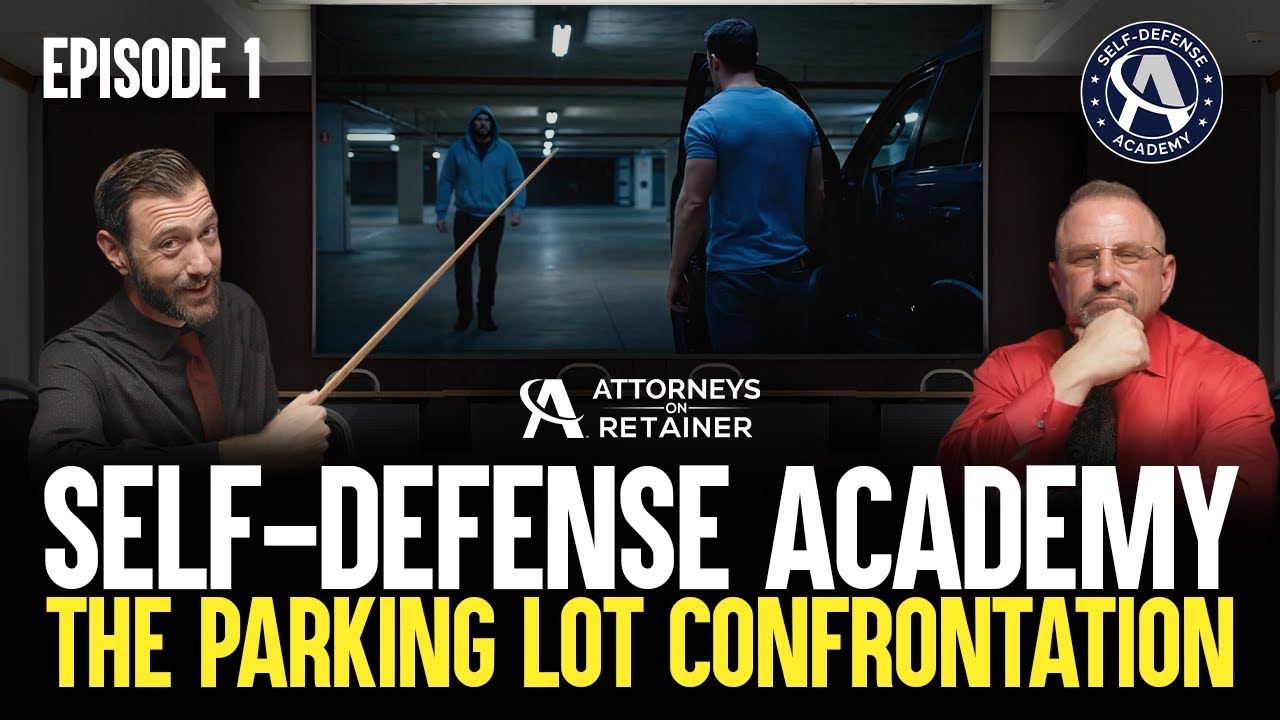Highlighting COMMON Self-Defense Mistakes People Make!
September 15, 2025
When it comes to self-defense, the law is often more complex than many people realize. Criminal defense attorneys Marc J. Victor and Rachel Moss explain the legal principles that determine how, when, and where you can use force to protect yourself or others. From the duty to retreat to the risks of firing a “warning shot,” the discussion highlights essential lessons every responsible firearms owner should understand.
The Duty To Retreat vs. Stand Your Ground
Most states do not impose a legal duty to retreat. However, a few still require that if a person can completely avoid a confrontation safely, they must do so before using deadly force.
“In all the states that have a duty to retreat, you never have to retreat if you are in your home. That’s what we call the castle doctrine. Your home is your castle.”
-Attorney Marc J. Victor
Some states extend this principle further to the workplace or even a vehicle, but the rules vary. What matters is that in duty-to-retreat jurisdictions, failing to retreat when you could have done so safely may lead to prosecution.
However, this creates a paradox. How could you possibly retreat in “complete safety” if a threat is imminent? Attorney Victor points out that, in decades of legal practice, they have never encountered a case where an imminent threat and a completely safe retreat existed at the same time. Nonetheless, failing to retreat can result in legal consequences if you are involved in one of these rare incidents in a duty-to-retreat state.
The Legal Risks of Firing Warning Shots
Many gun owners think that firing a warning shot is a safer, less-lethal choice than shooting an attacker. Unfortunately, that instinct can have legal consequences.
“Unlike displaying your firearm, warning shots are not necessarily legal where you live. Many states consider warning shots to be illegal or will just not issue a self-defense jury instruction when you go to trial.”
-Attorney Rachel Moss
Without a self-defense jury instruction, the jury won’t be informed they can acquit you if you acted in lawful self-defense. In practice, this nearly guarantees a conviction on charges like aggravated assault or even manslaughter.
Additionally, a fired bullet must land somewhere. If a warning shot injures an innocent bystander, you could face charges for reckless manslaughter. Even prosecutors might use the act of firing a warning shot as evidence against you. The attorneys advise that, even in states without a duty to retreat, avoiding conflict and retreating if safely possible is always the best course.
“Prosecutors will argue that the fact that you fired a warning shot shows that maybe you weren’t really facing an imminent threat because they said, ‘Well, if it was imminent, then you would have fired it at the person.’”
-Attorney Rachel Moss
Why Silence Is Golden After a Self-Defense Incident
The attorneys stress that the most crucial step after a self-defense incident is to remain silent. When adrenaline is running high, people often say things they later regret. Officers at the scene frequently misquote, misremember, or miswrite well-meaning statements. These errors rarely benefit the defendant. Instead, attorneys advise you to clearly and unambiguously invoke your constitutional rights to remain silent and to have your attorney present. Once you say, “I want my lawyer,” police questioning must cease. Unlike remaining silent alone, invoking your rights cannot be used against you in court.
“Rule number one: just shut up!”
-Attorney Rachel Moss
Don’t Get Mistaken for the Aggressor
Another overlooked danger occurs when officers arrive at the scene. You may appear to be a threat to them, especially if you’re holding a firearm. During police encounters, it is important not to appear as a threat:
- Keep your hands visible and still, for example, on the steering wheel during a traffic stop.
- Do not attempt to access your firearm unless directly told to do so by the officer.
- Avoid sharing details about firearms unless specifically asked.
- Maintain a respectful and calm attitude, regardless of personal feelings about law enforcement.
The attorneys advise securing your firearm safely after the threat is neutralized and before law enforcement arrives. Different incidents may require different responses, but the advice is to prioritize safety by understanding the police perspective and minimizing perceived threats.
“Put yourself in the mindset of a police officer responding to the scene. Again, they don’t know what they’re responding to. So, if they see you with a firearm, they’re not going to know if you’re the aggressor or if you’re the person defending yourself.”
-Attorney Rachel Moss
The Value of Experienced Legal Representation
The attorneys emphasize the importance of specialized legal representation in self-defense cases. Unlike some protection plans that exclude coverage when mistakes are made, Attorneys On Retainer (AOR) does not have a “criminal acts” exclusion. If a member acts in good faith but makes a misstep, AOR still provides legal defense. That includes access to investigators, expert witnesses, and experienced trial lawyers.
“This is the kind of thing that AOR is for.”
-Attorney Marc J. Victor
Conclusion
The law surrounding self-defense is complex, and mistakes can carry life-altering consequences. From understanding duty-to-retreat laws to avoiding the pitfalls of warning shots, the best defense is preparation, awareness, and restraint.
AOR exists to ensure that responsible firearms owners are legally protected before they are ever forced to defend themselves. If you are ever charged with a crime for defending yourself, you won’t have to face the system alone with AOR in your back pocket.
Attorneys For Freedom Law Firm is solely dedicated to representing individuals involved in self-defense incidents through our Attorneys On Retainer Program (AOR). To learn more about how The AOR Program can protect you, please call, 866-404-5112 or email us.



